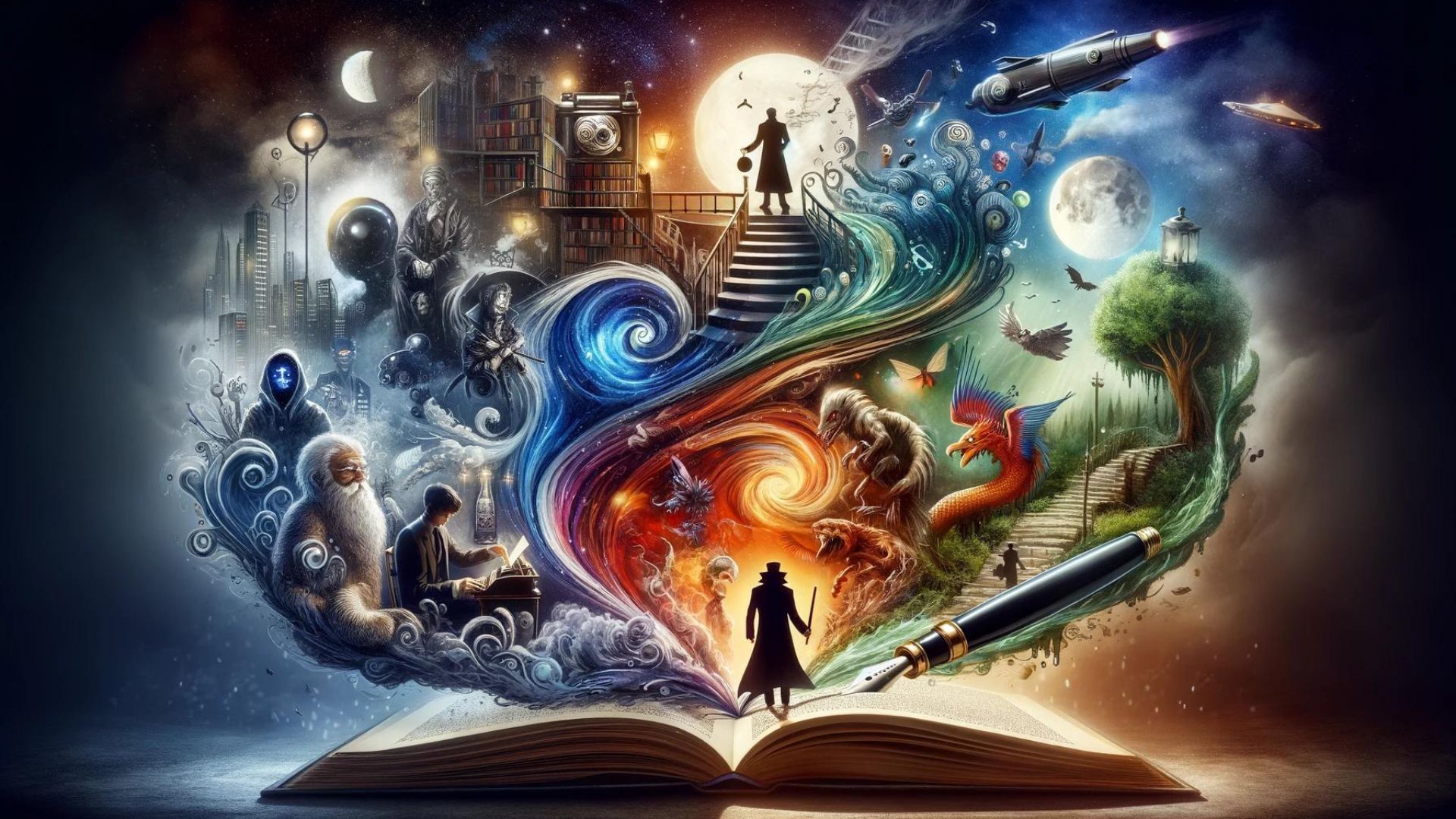Think of an experienced carpenter; a single toolkit with saws, hammers, and drills serves to build wildly different projects. While a birdhouse and a grand bookcase both may need wood and nails, the techniques and skill set required vary greatly. The same principle applies to writing across genres.
Why Genres Matter
Genres help readers know what to expect. If you pick up a sci-fi novel, you aren’t surprised when aliens blast onto the scene, just as you’d find it jarring if that same spaceship suddenly zoomed into the middle of your historical romance. Each genre possesses unique “rules” or conventions that readers instinctively anticipate. Mastering those rules is key to creating satisfying journeys for your audience within that genre’s realm.
Beyond the Rules: Adapting Your Technique
Let’s look at practical differences you might see across genres:
- Pacing: In a nail-biting thriller, a relentless pace creates suspense. Scenes might be snappy, dialogue rapid-fire, and details sacrificed to forward motion. On the other hand, a literary memoir welcomes moments of slow introspection, where lingering descriptive passages help to reveal the emotional landscape.
- Voice and Style: Think of a classic fairy tale with its timeless storytelling style versus a gritty hard-boiled detective novel full of street-smart slang. This choice of language plays a significant role in building atmosphere and giving an immersive feel to the genre itself.
- Point of View: Who narrates your story has incredible influence. An intimate thriller may use a tight first-person view to let readers experience the hero’s fears. In contrast, epic fantasy often demands a grander third-person narrative with scope to describe sweeping events and multiple characters.
The Challenge and The Reward
Writing across genres tests your flexibility. Imagine you’re crafting a lighthearted piece of comedic flash fiction – brevity and quick punchlines take center stage. Now, shift to writing a horror short story – the goal then becomes to steadily build a sense of dread through descriptive, atmospheric prose. Adapting your mindset for each project takes conscious practice!
The benefit of this is monumental. Writing in different genres helps you:
- Grow Your Literary Toolbox: Experimenting widens your range of styles, giving you more vocabulary and techniques to add to your arsenal.
- Expand Your Empathy: Understanding the demands of various genres helps you step into multiple perspectives, both as a writer and a reader.
- Appeal to Broader Audiences: Mastering multiple genres offers the opportunity to connect with more readers who’ll each enjoy your unique spin on their chosen style.
Taking Action with Genre Writing
Ready to flex your skills? Here’s how to start playing with genres:
- Pick a Genre to Study: Select a genre outside your comfort zone and commit to reading at least 3 successful examples. Analyze structure, pacing, voice, or worldbuilding details.
- Genre Hybrids: Can you find books that combine genres? How do authors skillfully interweave conventions, and which element seems dominant?
- Short Form Exercises: Write a single scene adapted to 3 different genres to practice switching tones. For instance, a romantic encounter could turn comedic, eerie, or become high-stakes in a sci-fi context.
Writing across genres is both a playful challenge and a journey of improvement. The more you dive in, the more adept you’ll become at understanding the inner workings of each genre, allowing you to cater directly to different reader expectations with precision and flair!
Why Should You Care?
- Enhance Reader Experience: Understanding genre-specific conventions helps you meet readers’ expectations, which is key to crafting an enjoyable and authentic reading experience.
- Grow Your Writing Skills: Experimenting with different genres expands your range as a writer, offering you new techniques and vocabulary to explore in future projects.
- Attract Wider Audiences: Mastering diverse genres helps you reach different readers and potentially create crossover appeal, boosting your exposure and author platform.
Key Takeaways
- Genres Create Reader Expectations: Each genre offers a roadmap of storytelling tropes, pacing styles, and thematic elements that loyal readers anticipate.
- Successful Writing Demands Adaptation: Tailoring your voice, pacing, and stylistic choices to suit your chosen genre is key to delivering on genre expectations.
- Experimentation Builds Expertise: Writing in multiple genres expands your toolbox of techniques and helps you understand different stylistic approaches.
Keywords
- Genre: Categorization of literature (often also of film, music, or other creative arts) characterized by specific conventions, style, and content.
- Tropes: Common motifs, themes, or plot devices recurring across a specific genre, which become familiar to readers.
- Pacing: The speed at which your story unfolds, often manipulated through scene length, dialogue style, and amount of detail.
- Voice: The distinctive sound and tone of your narrative, encompassing word choice, rhythm, and personality injected into the writing.
- Point of View (POV): The perspective from which your story is told – common options include first person (I/me), second person (you), and third person (he/she/they).
- Flash Fiction: Extremely short fictional stories of usually under 1000 words, known for their condensed storytelling style.
- Atmosphere: The overall mood or feeling of a piece, achieved through elements like description, tone, and pacing.
- Worldbuilding: Creating the history, cultures, and mechanics of fictional settings for stories, particularly important in fantasy, sci-fi and historical genres.
- Conventions: Genre-specific elements, from vocabulary choices to storylines, that regular readers find familiar and fulfilling.
- Hybrid Genres: Unique blendings of genre tropes and styles. For example, mixing western themes with futuristic science fiction settings.
FAQs
- Are genre rules set in stone? There’s always room to push boundaries. However, successfully subverting genres still requires you to first understand their underlying rules.
- What comes first – story or genre? It’s a symbiotic process. An idea might suggest a natural genre fit, but your genre choice will significantly shape its development.
- Does a story fit only within one genre? Stories increasingly blend tropes. Decide if one genre feels dominant, or embrace hybrid genres as your niche!
Myth Buster
- Myth: “Real” writers avoid genre fiction and choose more literary projects.
- Reality: There’s great artistic merit and challenge in mastering genre forms. Many critically-acclaimed masterpieces fall clearly within genres like fantasy, mystery, or even romance.
Let’s Talk!
- Have any stories defied your expectations with a surprising genre twist?
- Is there a particular genre you’ve been reluctant to write in? What excites and worries you about it?
- What genres do you enjoy reading most? Do your reading preferences and writing goals mirror each other?
Let’s keep the conversation going and learn from each other’s varied insights!










0 Comments